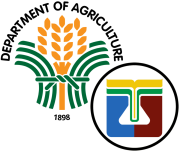The National Soil Health Program (NSHP)t
The National Soil Health Program (NSHP) was conceptualized to contribute to the DA’s vision of climate resilient food and nutrition secured Philippines.
The program provides a holistic and systematic approach in addressing soil health to ensure sustainable use and management of soil resources, enhanced agricultural productivity and increased farmers income.
One of the sustainable soil management practices implemented under the NSHP is the Adaptive Balanced Fertilization Strategy (ABFS). The ABFS promotes nutrient recycling addressing soil fertility decline and increasing fertilizer cost. Also, ABFS improve fertilizer use efficiency and soil health that enhance crop productivity and climate resiliency.
For 2023 under the NSHP, the BSWM established a nationwide ABFS technology demonstration of 100 hectares per region.
What is Balanced Fertilization Strategy (ABFS)?
What are the Benefits of Adaptive Balanced Fertilization?
1. The combined application of organic and inorganic fertilizer can greatly reduce production cost through nutrient recycling and reducing application of inorganic fertilizer.
2.The us of organic fertilizer can improve the physical, chemical and biological properties of the soil while the inorganic fertilizer serves as the primary source of nutrients for plant growth.
3. The combined use of organic and inorganic fertilizer can restore health, increase agricultural productivity, cost-efficient while minimizing impact to the environment.
What are the Legal Basis of this Program?
- Proclamation No. 1071 series of 1997 (Pres. Fidel Ramos)”Adoption of the Balanced Fertilization Strategy under the Gintong Ani Program of the Department of Agriculture.”
- DA Memorandum Circular No. 20 Series of 2020 “Adoption of Adaptive Balanced Fertilization Management to Enhance Crop Productivity and Increase Income of Rice Farmers.”
- DA Memorandum Order No. 74 Series of 2021″ Sustaining farm productivity, scaling balanced fertilization using fertilizer more effectively, applying cost-reducing and diversifying to increase income.”
- DA Memorandum dated March 14, 2022: Scaling-up of the Balanced Rice Fertilization to Mitigate the Impacts of Rising Fertilizer Cost through Information Campaigns and Technology Demonstration.
